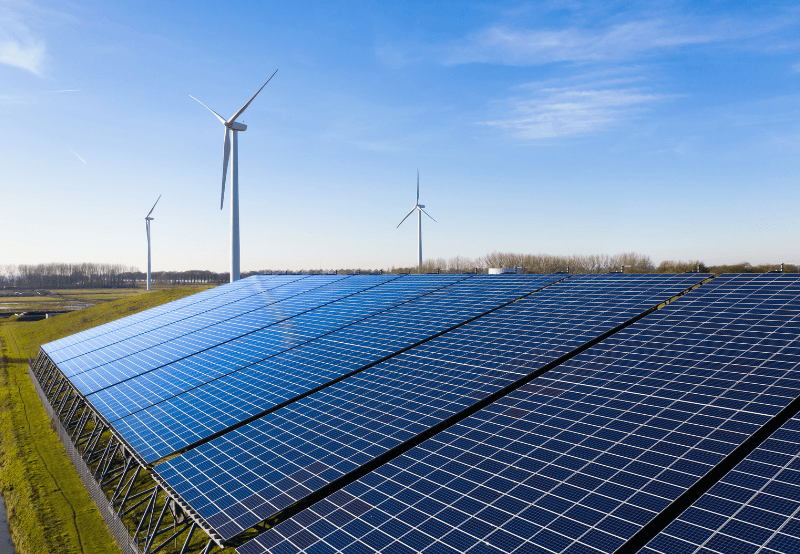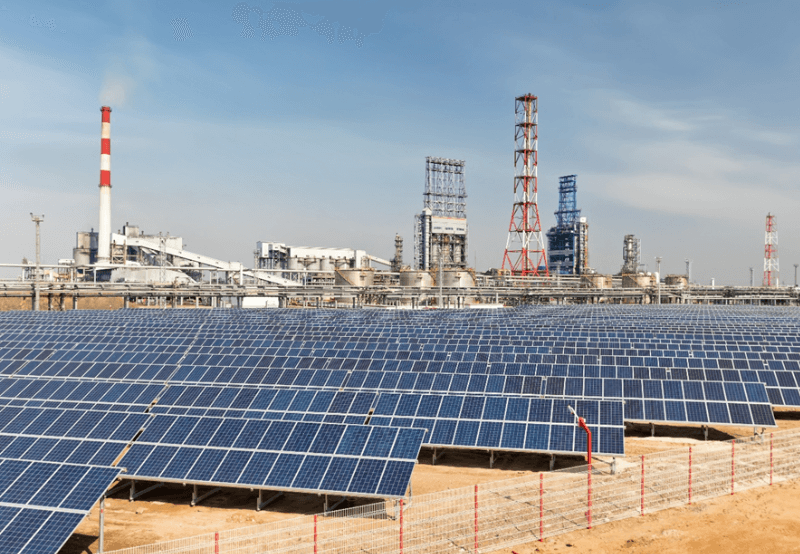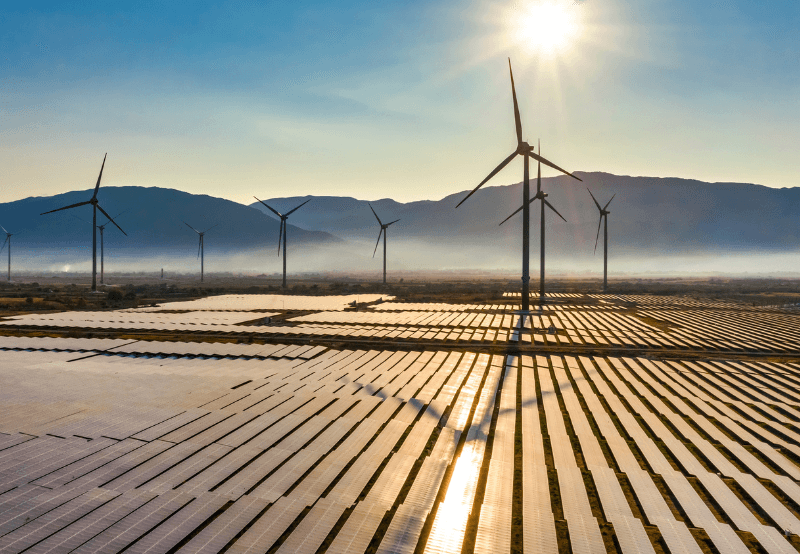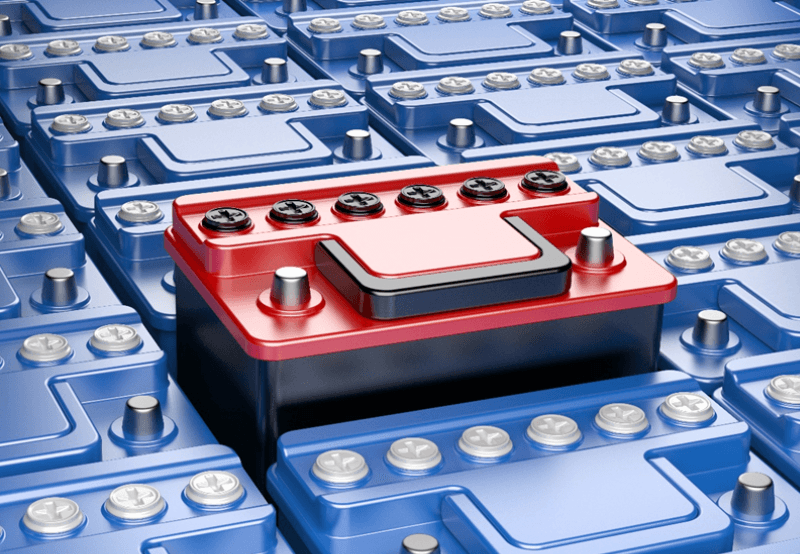More Space Between Solar Panel Rows Help Lower Module Temperatures: NREL
The research could be relevant for the growing field of agrivoltaics
October 27, 2022
Distancing rows of solar panels apart can help maintain the module temperature, which usually increases when solar modules are exposed to direct sun for a long time leading to a decrease in module efficiency, a new study by the National Renewable Energy Laboratory (NREL) has revealed.
Irradiance is the primary driver of module temperature, but it also results in an average drop of around 0.3%-0.5% in a module’s maximum power output.
Gutters between the panel rows create paths for the wind to flow so the excess heat in the modules due to prolonged exposure to the sun can be reduced, ultimately improving module performance with convective cooling efficiency.
The amount of ground-reflected irradiance on a solar module increases when the panels are distanced. The gutters also help decrease the incidence of modules casting shade on each other.
The study – ‘Technoeconomic Analysis of Changing PV Array Connective Cooling Through Changing Array Spacing’ is published in the IEEE Journal of Photovoltaics.
The analysis, which relied on NREL’s System Advisor Model, demonstrated that a greater separation between rows would improve the performance of a PV system by allowing airflow to cool down the solar modules.
NREL researcher and lead author of the study, Matthew Prilliman, observed, “When you look at the layout of the system, like how the modules are spaced apart, what angle they’re at, how high they’re off the ground—that all affects airflow.”
He said few previously used computer models considered the changes in heat transfer caused by differences in how an array is configured.
However, the researchers found that a greater separation of rows carries additional costs. Notably, more land is needed as the arrays are spaced out more. In addition, wiring costs increase as the arrays are more spread out. Crucially, the researchers determined the benefits outweigh the costs in many cases.
The research could be particularly relevant for the growing field of agrivoltaics, in which crops are planted adjacent to or below solar panels. The changing land usage for different layouts would affect the placement of crops, which could, in turn, also affect wind flow.
Lead author of another NREL research focussed on agrivoltaics, Jordan Macknick, said, “Increasing spacing could enable more varieties of crops and more types of agricultural equipment to be utilized in agrivoltaic systems. That could potentially make these spaced-out solar systems more cost-effective and compatible with larger-scale agriculture.”
In India, agrivoltaics have slowly been gaining ground as they help solve the rising need for land to ensure both food and energy security. Several entrepreneurs are giving agrivoltaics a shot.
Get the most relevant India solar and clean energy news.
RECENT POSTS
Nov 30, 2022
Nov 30, 2022
Mar 2, 2023
Mar 2, 2023
India added 2.5 GW of solar open access in the calendar year (CY) 2022, a year-over-year (YoY) increase of 92% from the 1.3 GW installed in CY 2021, according to the newly released 2022 Q4 & Annual Mercom India Solar Open ...
March 16, 2023
Markets & Policy
25% of Generation Capacity of Coal Plants Must be from Renewables: Ministry of PowerThe Ministry of Power (MoP) has proposed that any coal-based thermal generation station coming up after April 1, 2024, must either install or procure renewable energy equivalent to 25% of the thermal generation capacity. Stakehold...
November 9, 2022
Mercom Research Focus
India’s Solar Market Leaders for 1H 2022Mercom India has released its report, India Solar Market Leaderboard 1H 2022, unveiling solar market leaders in the first half (1H) of the calendar year (CY) 2022. The report covers market share and shipment rankings across the In...
November 9, 2022
Energy Storage
Webinar to Shed Light on How Battery Storage Enhance Solar Systems’ PerformanceBattery energy storage technologies globally are transforming how companies utilize, control, and dispatch electricity and facilitating a smoother transition to clean energy. The Indian market is also realizing how battery storage...
November 9, 2022
Trending News
November 30, 2022
November 30, 2022
March 2, 2023
March 2, 2023
November 28, 2022
Tender & Auctions
PTC India’s EoI to Procure 1 GW of Hybrid Power Receives Overwhelming Response
November 3, 2022
Magazine
Grid
GreenCell Raises $40 Million Funding from ADB to Develop Electric Buses
Energy Storage
Webinar to Shed Light on How Battery Storage Enhance Solar Systems’ Performance
November 7, 2022
Latest News
This is custom content that will be displayed at the video in case you want to give an overview, etc. Michael Ballard
November 30, 2022
India added 2.5 GW of solar open access in the calendar year (CY) 2022, a year-over-year (YoY) increase of 92% from the 1.3 GW installed in CY 2021, according to the newly released 2022 Q4 & Annual Mercom India Solar Open...
March 16, 2023
The Ministry of Power (MoP) has proposed that any coal-based thermal generation station coming up after April 1, 2024, must either install or procure renewable energy equivalent to 25% of the thermal generation capacity....
November 9, 2022
Some test content that can be displayed somewhere maybe if needed? Not sure Michael Ballard
November 30, 2022
March 2, 2023
OUR FLAGSHIP EVENT, MERCOM INDIA RENEWABLES SUMMIT, APRIL 2023 Mercom India Renewables Summit 2023 (formerly Mercom India Solar Summit) brings together developers, manufacturers, investors, innovators, and other key decision...
November 28, 2022
PTC India’s expression of interest (EoI) to procure 500 MW of hybrid renewable energy (wind and solar) (Tranche-I), with a greenshoe option for an additional 500 MW, has received a strong response, according to Mercom sources....
November 9, 2022
Ballard Power Systems, a fuel cell and clean energy solutions provider, recorded a net loss of $42.88 million in the third quarter (Q3) of 2022, a year-over-year (YoY) increase of 39%. The revenue for the quarter was $21.34...
November 9, 2022
Solid Power, Inc., a U.S.-based developer of all-solid-state battery cells for electric vehicles (EVs), reported a net loss of $12.4 million for the third quarter (Q3) 2022, a 46% increase from the $8.45 million loss during the...
November 9, 2022
Get the most relevant India solar and clean energy news.
POPULAR POSTS
Test Video Post2
Nov 30, 2022
14:46 Installs a Record 2.5 GW of Solar Open Access in 2022, Up 92% YoY
Mar 16, 2023
25% of Generation Capacity of Coal Plants Must be from Renewables: Ministry of Power
Nov 9, 2022
JANUARY 2023
Nov 30, 2022
DECEMBER 2022
Mar 2, 2023
NOVEMBER 2022
Mar 2, 2023
Mercom India Renewables Summit 2023
Nov 28, 2022





